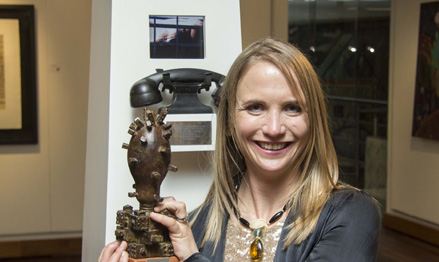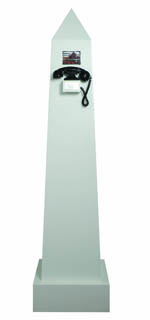Latest News Archive
Please select Category, Year, and then Month to display items
12 January 2024
|
Story Nonsindiswe Qwabe
|
Photo Sonia Small
 Since joining the UFS in 2008, Dr Grey Magaiza has worked extensively on approaches that can foster the socio-economic transformation of societies.
Since joining the UFS in 2008, Dr Grey Magaiza has worked extensively on approaches that can foster the socio-economic transformation of societies.
“The future should be one where communities can decide on their development agenda and futures. That’s the most important for me.” Dr Grey Magaiza, Deputy Director of the Centre for Gender and Africa Studies (CGAS) and Head of the Community Development programme on the Qwaqwa Campus, is passionate about capacitating communities to be agents of change and advancement. His vision for the future emphasises the empowerment of communities to take charge of their development by actively participating in decision making and the implementation of development projects that can improve their lives.
Since joining the UFS in 2008, Dr Magaiza has worked extensively on approaches that can foster the socio-economic transformation of societies. Over the years, he has crafted his research speciality into one that he is most proud of – being an interdisciplinary scientist immersed in the development of communities.
“I’m in a fortunate position of researching what I like. I say ‘fortunate’, because I’ve taken the time to understand what I’m passionate about, which is the overall field of rural livelihoods and livelihood futures – in short, community development. My research starts from an engaged university, understanding the elements that a university must use to enhance transformation and relevance to its immediate community in terms of development.”
One of the ways he has done this is by looking at social entrepreneurship as a development approach for young people in a rural setting. Through workshops with non-profit and civic organisations in Qwaqwa, Dr Magaiza has been helping these organisations to map out their needs and actively meet them through the involvement and support of external role players.
“We understand that communities are part of the national development agenda, but even that national agenda respects community knowledge and intentions and allows communities to shape their identity. A critical enabler of this is community organising. You bring back the capacity in communities to have dialogues on issues affecting them as spaces for engagement, knowledge exchange, and for people to just talk about their way forward.”
By enabling communities to define their development agenda, they can address their specific needs, challenges, and aspirations, he said. “When I look at livelihood futures, it’s quite an exciting aspect of my work – it’s like looking into a fortune tellers’ globe, because you’re not deciding for communities what they should do, but the communities themselves take those decisions.”
Another L’Atelier feather in the university’s cap
2013-07-24
|
 |
|
Pauline Gutter, winner of this year’s Absa L’Atelier competition
Photo: Supplied
23 July 2013 |
"Dagbreek: Die Dagbreker" - interview with Pauline Gutter (YouTube)
A former Kovsie won the Absa L’Atelier competition – South Africa’s most prestigious art competition – for the second year in a row. 
Pauline Gutter, who completed her BA Fine Arts degree at the UFS in 2003, is the second artist from the Free State to win the competition, which is in its 28th year of existence. In 2012, Elrie Joubert, another former Kovsie student from the Department of Fine Arts, won the competition as well.
As overall winner, Gutter receives a cash prize of R125 000 and six months’ residency in the studio apartment Cité Internationale des Arts in Paris, France.
Her winning entry, Die huweliksaansoek, is an interactive work consisting of a 1.8 m high association-rich obelisk, an engraved plaque, a small TV monitor and a farm-line handset. A video of a bull standing in a crush while semen is being drawn from it, is displayed. The viewer is invited to listen in voyeuristically. The soundtrack for the text is composed of statements and comments made by participants in the programme “Boer soek `n Vrou”. The question highlighted by the work, is, “does a farmer choose his future wife in the same way he breeds his stud animals?”
Pauline says her association with the farm, principled parents and strong family ties serve as inspiration for her work. To express her artistic voice in a contemporary environment is to be a close observer of society, she says. “It’s to ask questions which confront the viewer in a provocative way.”
Her advice to new artists is “hard work, sustainability and commitment. Keep looking until you find the place where you fit in.”